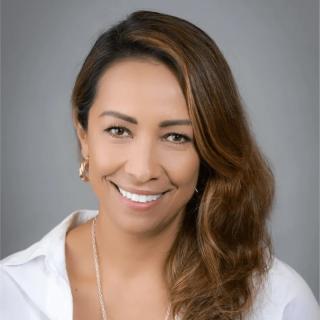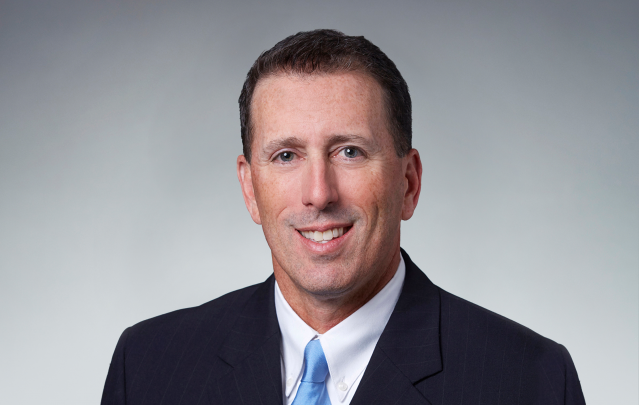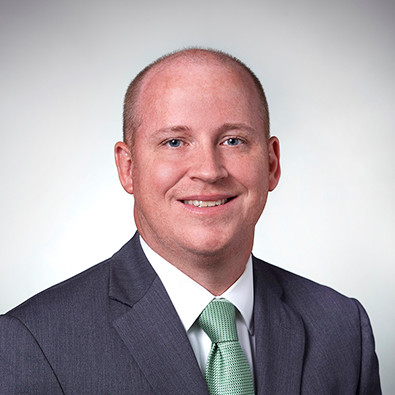An expert’s vision for the future of neuromuscular care

Dr. Diana Castro shares her passion for holistic patient care, research initiatives and what lies ahead for neuromuscular disease treatments.
Each year in the month of June, Accredo by Evernorth proudly supports the spinal muscular atrophy (SMA) community at the annual CureSMA conference. This event brings together individuals living with SMA, their families, researchers and prescribers. Recently, Accredo’s Diana Florio, RN, BSN sat down with Diana Castro, MD, a trailblazer in neuromuscular care. Dr. Castro is renowned for her pioneering spirit in whole-patient care for individuals living with neuromuscular conditions, such as SMA.
Dr. Castro is a distinguished board-certified neurologist and neuromuscular physician and has carved a niche as a leader in the field. Her expertise spans SMA, Duchenne muscular dystrophy (DMD), myasthenia gravis and acquired neuropathies including chronic inflammatory demyelinating polyneuropathy (CIDP). From her beginnings in Bogota, Colombia, to opening the Neurology & Neuromuscular Care Center in Texas, her journey reflects a passion and strong commitment for providing care to individuals living with neuromuscular diseases.
In this conversation, we explore her vision for patient care, pioneering efforts in research and the transformative therapies shaping the future of neuromuscular medicine, while bringing awareness to the neuromuscular conditions community
Embracing holistic patient care
You have a unique approach to whole-patient care. Can you share what motivated you to treat both pediatric and adult patients in the neuromuscular space, and how this approach differs from a conventional practice?
Absolutely. My mission in neuromuscular care is driven by a desire to provide whole-patient care and support to individuals regardless of their age or insurance status. By offering integrated care for patients of all ages, we ensure a smoother transition and more personalized treatment plans tailored to an individual's needs.
This is important because in a conventional practice, the transition from pediatric to adult care is filled with challenges, leading to gaps in continuity and suboptimal outcomes. Treating both pediatric and adult patients allows me to address the continuum of care from childhood into adulthood seamlessly.
Starting out, I trained in pediatric neuromuscular medicine and would consistently encounter patients, once they turned 21, forced to transition to resident clinics where the level of care is often inadequate to meet their needs. I became frustrated by the lack of continuity and seeing my patients struggle, so I decided to open my own clinic with my husband to ensure that all patients with a neuromuscular condition can receive the care needed.
Breaking boundaries with nonprofit clinic and research endeavors
Your clinic operates as a nonprofit entity while engaging in groundbreaking research initiatives. Can you shed light on the rationale behind this dual approach and the impact it has on patient care?
When my husband and I opened the clinic, we were addressing a gap in care for neuromuscular patients, particularly in the adult sector. Our goal is to offer care for anyone, regardless of age or insurance status. By establishing a nonprofit clinic, we can leverage grants and opportunities for research which help to cover medical expenses for our patients that may not have access to insurance coverage.
Additionally, a dual approach combining nonprofit and research not only impacts patient care, but it also enhances access to care for patients. It fosters a collaborative environment where patients are actively involved in research endeavors aimed at improving treatment outcomes.
Our clinic’s model has also allowed me the opportunity to work directly with pharmaceutical manufacturers and be at the forefront of clinical research trials focusing on SMA, DMD, myasthenia gravis and acquired neuropathies, among other conditions. All of which help my patients and other individuals around the world living with a neuromuscular condition.
Expanding reach from local to international patients
Your clinic has garnered attention internationally, with patients seeking care from across the globe. How do you navigate the challenges of treating international patients, and what motivates you to extend your reach beyond borders?
I decided to expand the clinic’s offerings beyond the border of the United States partly due to my own Colombian descent. I have always been deeply committed to ensuring health care accessibility regardless of geographic location. For a decade, I have traveled to countries in Central and South America, teaching and sharing about neuromuscular conditions. The clinic has been able to not only provide access to high quality care in these regions, but I have had the honor to serve as a valuable educational tool for local health care professionals.
I hope that my work internationally represents a step toward addressing health care disparities and advancing the standard of care for neuromuscular conditions across the globe. Through the collaborations and educational outreach by our clinic, we strive to empower health care providers worldwide to deliver optimal care for patients with neuromuscular conditions.
Charting the course in the future of neuromuscular therapy
The landscape of neuromuscular therapies has evolved significantly in recent years. What advancements are you most excited about, and what do you envision for the future of neuromuscular care?
The emergence of gene transfer therapies and disease-modifying drugs has revolutionized the treatment landscape for neuromuscular diseases. While we have made significant strides, there is still much to explore in terms of optimizing treatment efficacy and addressing unmet needs in patient care. I am particularly excited about ongoing research in gene therapy vectors and novel therapeutic approaches that hold promise for further enhancing patient outcomes.
As we continue to push the boundaries of medical innovation, I am hopeful that we will pave the way for a future where neuromuscular conditions are managed and effectively treated. Most importantly, not just for pediatrics, but also for patients who are living well into adulthood due to the improved treatments available.
A commitment to whole-patient care for all patients
Dr. Diana Castro exemplifies steady dedication, compassion and innovation. From her comprehensive approach to patient care to her pioneering efforts in research, she continues to shape the future of neuromuscular medicine with boundless optimism and unwavering determination. We support her call for collaboration, compassion and advocacy to ensure that every patient receives the care and support they deserve.
Learn more about the work of CureSMA, and follow Accredo on LinkedIn for more conversations with health care leaders like Dr. Castro.



